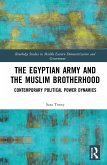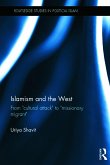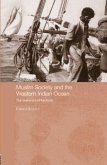The Muslim Brotherhood is the most significant and enduring Sunni Islamist organization of the contemporary era. Its roots lay in the Middle East but today it is both a local and global movement. Under the slogan that "Islam is the solution" the Muslim Brotherhood and its ideologues have impacted on the political evolution of the region. The Muslim Brotherhood is variously regarded as a true force for moderation among Islamists or a facade behind which lies a terroristic fundamentalist threat which could undermine global security agendas. The Arab Spring has brought the Muslim Brotherhood to the fore of regional politics once more. The face of the Brotherhood and its ambitions are slowly being realised as state-based power is re-ordered across the Middle East. The book will examine the genesis and evolution of the Muslim Brotherhood in the Middle East with chapters devoted to specific cases and localities where the Brotherhood and its ideas have made and are making important impacts on society, the state and politics. Within these chapters the author will assess in detail the dynamics of particular themes of Islamist politics associated with the Brotherhood such as democracy, equality, pan-Islamism, radicalism, violence, reform, the Palestine issue and gender. This will reveal an evolutionary trend within the movement since its founding in Egypt in 1928 to its manifestation as the largest Sunni Islamist movement in the Middle East in the 21st century. Drawing on a wide range of sources and interviews with the leaders and cadres this book presents an evolving standpoint of a newly resurgent movement that is significantly organised to take the opportunities for power and electoral competition offered by the Arab Spring. The book will also question whether the Muslim Brotherhood can demonstrate to its sceptics that an accommodation with democracy and the presence of a secular trend within the region can be made. The book will also be the first study to deal with the ascension to power, through the ballot box, of the Muslim Brotherhood (including in its localised forms) in the Palestinian territories, Tunisia, Egypt and elsewhere to analyse the impact of this in terms of Western policy debates on whether and how they should engage with this manifestation of political Islam.
Regarded by some as a force of moderation among Islamists, and by others as a façade hiding a terrorist fundamentalist threat, the potential influence of the Muslim Brotherhood on Middle Eastern politics remains ambiguous. The Muslim Brotherhood: The Arab Spring and its Future Face provides an essential insight into the organisation, with chapters devoted to specific cases where the Brotherhood has important impacts on society, the state and politics. Key themes associated with the Brotherhood are assessed to reveal an evolutionary trend within the movement since its founding in Egypt in 1928 to its manifestation as the largest Sunni Islamist movement in the Middle East in the 21st century. The book addresses the possible future of the Muslim Brotherhood; whether it can surprise sceptics and effectively accommodate democracy and secular trends, and how its ascension to power through the ballot box might influence Western policy debates on their engagement with this manifestation of political Islam.
Regarded by some as a force of moderation among Islamists, and by others as a façade hiding a terrorist fundamentalist threat, the potential influence of the Muslim Brotherhood on Middle Eastern politics remains ambiguous. The Muslim Brotherhood: The Arab Spring and its Future Face provides an essential insight into the organisation, with chapters devoted to specific cases where the Brotherhood has important impacts on society, the state and politics. Key themes associated with the Brotherhood are assessed to reveal an evolutionary trend within the movement since its founding in Egypt in 1928 to its manifestation as the largest Sunni Islamist movement in the Middle East in the 21st century. The book addresses the possible future of the Muslim Brotherhood; whether it can surprise sceptics and effectively accommodate democracy and secular trends, and how its ascension to power through the ballot box might influence Western policy debates on their engagement with this manifestation of political Islam.
"The book is a very useful and comprehensive introduction to one of the Middle East and North Africa's most influential and widespread socio-political movements. It includes extensive details concerning the Muslim Brotherhood's history and the histories of its national branches as well as insights into their future trajectories. Milton-Edward's volume is particularly well suited to classroom use, including by undergraduates. The individual chapters can also fairly easily be used independently of one another in university courses on Middle East politics, political Islam, and Middle East and North African history."
Christopher Anzalone, ABD McGill University, Montreal - Middle East Media and Book Reviews Online
Christopher Anzalone, ABD McGill University, Montreal - Middle East Media and Book Reviews Online








